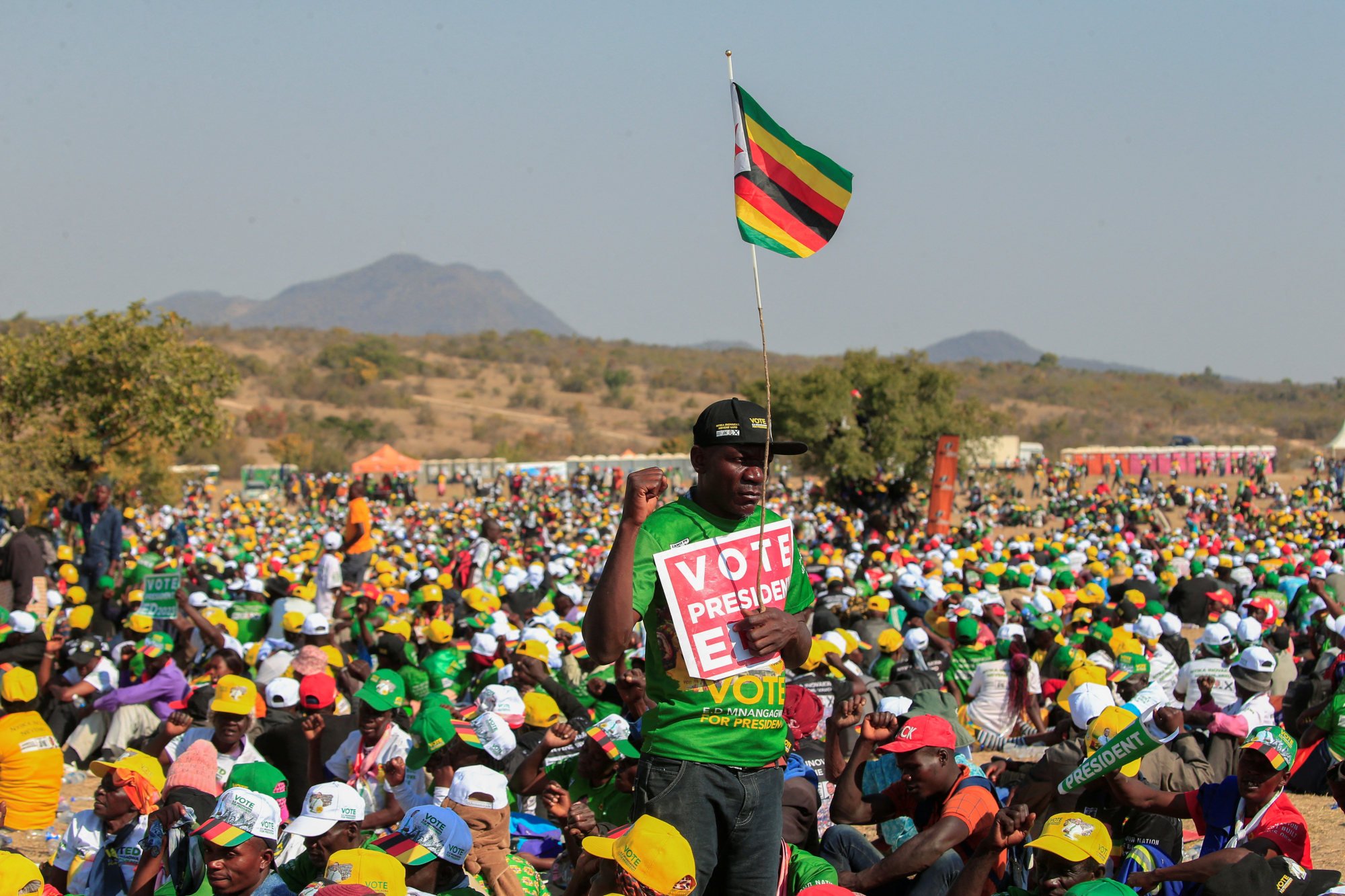
Odds stacked against Zimbabwe opposition as election nears, integrity of contest called in to question
- The government has ‘weaponised the law’ and used nonviolent coercion to intimidate people into supporting it, political experts say
- The integrity of the contest has been called in to question, with Amnesty International accusing the government of undermining civil liberties
A deeply divided opposition, hobbled by a slew of court cases, has struggled to capitalise on public outrage about the near-collapse of government services, triple-digit inflation and rampant poverty. That’s put octogenarian President Emmerson Mnangagwa in pole position to win the August 23 vote.
The integrity of the contest has been called into question, with Amnesty International accusing the government of undermining civil liberties over the past five years, helping entrench the incumbent’s dominance. The watchdog also criticised Zimbabwe’s so-called Patriotic Bill that came into force last month and makes it illegal to wilfully injure the nation’s sovereignty and national interests, saying it further criminalises dissent.
“The odds are stacked against the opposition,” the Institute for Security Studies, a Pretoria-based think tank, said in a research note. The government has “weaponised the law,” used nonviolent coercion to intimidate people into supporting it and taken credit for government-funded programmes, it said.
Winning a tainted election may derail efforts by Mnangagwa, who’s held power since long-time ruler Robert Mugabe was ousted in a 2017 coup, to restructure the nation’s US$18 billion of debt arrears. Creditors including the African Development Bank have warned that any deal would be contingent on a credible contest.
“There would be very little sympathy in terms of debt relief” or other help from the West if the vote is compromised, said Stephen Chan, a professor of world politics at the School of Oriental and African Studies in London.
The government rejected Amnesty’s findings and Mnangagwa has pledged that the election will be credible, with 45 nations and 17 continental and regional bodies having been invited to send observers. The Zimbabwe African National Union-Patriotic Front has ruled Zimbabwe since it gained independence from Britain in 1980.

“We are entrenching democracy and constitutionalism, good governance and human rights. No one, no one is qualified to teach us democracy”, the president, told a cheering crowd of tens of thousand of people who attended an election rally in Shurugwi, south of the capital, Harare, on Saturday. “It is us who want free, fair transparent elections. It is us. We are not doing this to please anybody”.
Almost half of 2,400 Zimbabweans polled by pan-African survey company Afrobarometer in April and May said they don’t expect the election results to reflect how citizens voted and most anticipate violence after the ballot. An earlier poll of 1,000 voters commissioned by the Johannesburg-based Brenthurst Foundation and conducted by the Sabi Strategy Group, found the opposition Citizens Coalition for Change would win a fair contest.
Tony Hawkins, an economics professor at the University of Zimbabwe, sees the election having little impact on the economy, with Western nations and donors loathe to engage with the government irrespective of the outcome.
“The election is a non-event”, he said. “It’s already decided”.

